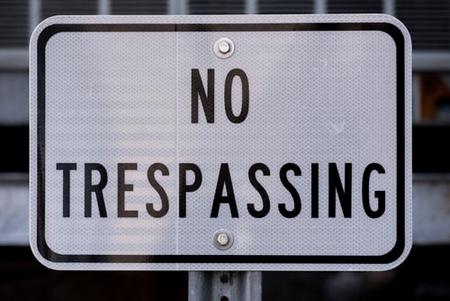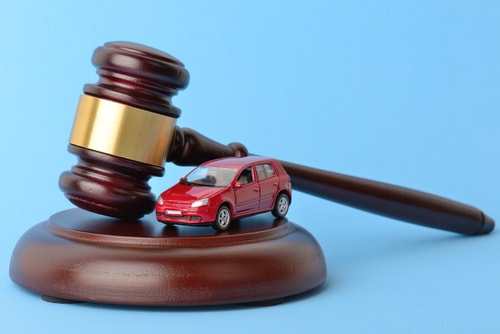Recent Blog Posts
New Illinois Law Affects Statute of Limitations on Sex Crimes
 The start of the new decade saw many changes to Illinois laws. The amendments and new legislation cover a wide variety of issues, from traffic violations to sexual crimes to the financial exploitation of the elderly, as well as the use of recreational marijuana. One of the most far-reaching laws removes the statute of limitations for criminal sexual assault, aggravated criminal sexual assault, and aggravated criminal sexual abuse for victims of any age, not just those 18 and under. This means a victim can file charges against his or her offender within any timeframe, not just within a certain number of years after the alleged crime took place.
The start of the new decade saw many changes to Illinois laws. The amendments and new legislation cover a wide variety of issues, from traffic violations to sexual crimes to the financial exploitation of the elderly, as well as the use of recreational marijuana. One of the most far-reaching laws removes the statute of limitations for criminal sexual assault, aggravated criminal sexual assault, and aggravated criminal sexual abuse for victims of any age, not just those 18 and under. This means a victim can file charges against his or her offender within any timeframe, not just within a certain number of years after the alleged crime took place.
Previously, a sexual assault victim had to take legal action within 10 years of the offense if the victim reported the offense to police within three years after the commission of the crime. A large number of people may be facing criminal charges because of this change, and that is why it is important to understand what acts constitute these crimes and the legal ramifications if you are ever charged with them.
What Are the Penalties for Criminal Trespassing in Illinois?
 When someone sees a “no trespassing” sign, he or she may not take it very seriously. It may seem more like a request to stay off of someone’s yard than an actual law. In legal terms, trespassing is defined as physically being on another person’s property without permission. Property owners have the right to call the police and have trespassers arrested and charged if they are on their premises. Generally, trespassing is charged as a misdemeanor offense in Illinois. However, if a person trespasses on a certain type of property or with the intent to commit a crime such as burglary, it could be charged as a felony.
When someone sees a “no trespassing” sign, he or she may not take it very seriously. It may seem more like a request to stay off of someone’s yard than an actual law. In legal terms, trespassing is defined as physically being on another person’s property without permission. Property owners have the right to call the police and have trespassers arrested and charged if they are on their premises. Generally, trespassing is charged as a misdemeanor offense in Illinois. However, if a person trespasses on a certain type of property or with the intent to commit a crime such as burglary, it could be charged as a felony.
Different Forms of Trespassing
It is important to note that under Illinois law, there are two types of trespassing, civil and criminal. Civil trespass typically involves a tenant-landlord situation in which a tenant fails to pay rent but still remains in the residence. The police will not get involved until the eviction process is formally started. Criminal trespass to property, residence, or vehicle are more serious offenses, which can lead to fines and imprisonment depending on the circumstances. A few examples of this type of trespassing include the following:
What Are Some Common Injuries Suffered on Construction Sites in Illinois?
 Construction jobs can be more dangerous than other types of jobs due to the nature of the work. For example, construction workers often operate heavy machinery to perform their duties, sometimes at extreme heights on scaffolding. According to the Bureau of Labor Statistics, there are approximately 150,000 construction site accident injuries every year in the United States. The reasons for injury can range from improperly maintained equipment, inadequate training, or hazardous workplace conditions. Although some injuries may be minor, others can be debilitating, requiring surgery, physical therapy, or extensive rehabilitation. In some cases, a person may be unable to return to work in the construction field. Workers’ compensation benefits can alleviate some of the medical costs incurred after a work injury. However, in certain situations, a negligent third party could be held responsible for your injury as well.
Construction jobs can be more dangerous than other types of jobs due to the nature of the work. For example, construction workers often operate heavy machinery to perform their duties, sometimes at extreme heights on scaffolding. According to the Bureau of Labor Statistics, there are approximately 150,000 construction site accident injuries every year in the United States. The reasons for injury can range from improperly maintained equipment, inadequate training, or hazardous workplace conditions. Although some injuries may be minor, others can be debilitating, requiring surgery, physical therapy, or extensive rehabilitation. In some cases, a person may be unable to return to work in the construction field. Workers’ compensation benefits can alleviate some of the medical costs incurred after a work injury. However, in certain situations, a negligent third party could be held responsible for your injury as well.
Increased Fines for Certain Illinois Traffic Violations for 2020
 Federal and state laws are constantly changing for various reasons. In some cases, new legislation reflects an update to the punishment, definition, or statute of limitations for a criminal act. In Illinois, there are 250 new laws set to go into effect on January 1, 2020. These regulations cover a range of crimes, including drug sale or possession, sexual offenses, and traffic violations. Depending on the type of offense, traffic crimes may be classified as “moving or nonmoving violations.” Moving violations are more serious in nature, which could potentially lead to injury or even wrongful death. Although many people view traffic citations as an annoyance, they are meant to deter poor driving habits by motorists. Any changes to traffic laws are generally made to increase the safety of everyone on the roadways.
Federal and state laws are constantly changing for various reasons. In some cases, new legislation reflects an update to the punishment, definition, or statute of limitations for a criminal act. In Illinois, there are 250 new laws set to go into effect on January 1, 2020. These regulations cover a range of crimes, including drug sale or possession, sexual offenses, and traffic violations. Depending on the type of offense, traffic crimes may be classified as “moving or nonmoving violations.” Moving violations are more serious in nature, which could potentially lead to injury or even wrongful death. Although many people view traffic citations as an annoyance, they are meant to deter poor driving habits by motorists. Any changes to traffic laws are generally made to increase the safety of everyone on the roadways.
What Are the Illinois Laws Regarding Underage Possession of Firearms?
 The Second Amendment to the U.S. Constitution has been in the news a lot over the past few decades. Mass shootings at schools, synagogues, shopping malls, and theaters have put the issue of gun control at the forefront of public consciousness. Many people want to ban firearms except for the military and law enforcement. However, the Second Amendment protects an individual’s right to keep and bear arms.
The Second Amendment to the U.S. Constitution has been in the news a lot over the past few decades. Mass shootings at schools, synagogues, shopping malls, and theaters have put the issue of gun control at the forefront of public consciousness. Many people want to ban firearms except for the military and law enforcement. However, the Second Amendment protects an individual’s right to keep and bear arms.
With this in mind, you should know that Illinois state laws regarding the concealed carry of a weapon are some of the strictest in the country. But how do they apply to minors who are in possession of a firearm? It is important to understand the gun laws in Illinois since the punishments vary depending on the age of the offender.
Criminal Charges Involving Firearms
In Illinois, a person must obtain a Firearm Owner’s Identification card (FOID) from the state police before purchasing a gun or any ammunition. However, a FOID is only available for adults who do not have a criminal record or history of mental illness.
How Do I Reinstate My Driver’s License After an Illinois DUI?
 Learning how to drive is a rite of passage for most people. A driver’s license comes with the responsibility to uphold the rules of the road and drive safely. However, that is not always the case, and a driver can face serious consequences for breaking the law. There are several reasons why a motorist may have his or her driver’s license taken away. Actions such as driving under the influence of drugs or alcohol (DUI) or reckless driving can lead to a license suspension or revocation depending on the circumstances. Unfortunately, driver’s license reinstatement can be a long and complicated process. That is why it is best to seek professional legal counsel to represent you.
Learning how to drive is a rite of passage for most people. A driver’s license comes with the responsibility to uphold the rules of the road and drive safely. However, that is not always the case, and a driver can face serious consequences for breaking the law. There are several reasons why a motorist may have his or her driver’s license taken away. Actions such as driving under the influence of drugs or alcohol (DUI) or reckless driving can lead to a license suspension or revocation depending on the circumstances. Unfortunately, driver’s license reinstatement can be a long and complicated process. That is why it is best to seek professional legal counsel to represent you.
Steps to Take to Get Your License Back
Reinstating your driver’s license after it was revoked is not as simple as paying a fine. The process for license reinstatement depends on why your license was revoked in the first place, in addition to other factors, such as your driving history. In Illinois, the Secretary of State’s office oversees vehicle registration and driver licensing authority, including reinstatements. The SOS Office will assess your case, and you will need to attend an SOS hearing and prove that you are not a danger to others on the road.
What Are the Consequences of Theft Crimes in Illinois?
 Criminal offenses such as theft, robbery, and burglary are often misunderstood crimes because they are frequently lumped together. However, they are different offenses. Under Illinois law, theft occurs any time a person’s actions result in the intentional and unauthorized taking of property or services.
Criminal offenses such as theft, robbery, and burglary are often misunderstood crimes because they are frequently lumped together. However, they are different offenses. Under Illinois law, theft occurs any time a person’s actions result in the intentional and unauthorized taking of property or services.
Theft offenses are typically classified according to the dollar amount value of the item or service stolen and can range from misdemeanors to felonies depending on the circumstances. It is important to know the distinctions between them in case you are ever facing prosecution for theft in Illinois.
What Constitutes Theft?
Illinois law defines theft as occurring when a person knowingly:
- Takes unauthorized control over property of another
How Can OSHA Violations Lead to a Workplace Injury?
 There is no doubt that certain jobs are more dangerous than others are. For example, a police officer faces the potential for physical injury on a daily basis, while an office or factory worker would not experience the same kinds of risks. However, workplace accidents can occur in any field of work. The Occupational Safety and Health Administration (OSHA) establishes standards and rules that detail the methods that employers must use to protect their employees from dangers and hazardous conditions. OSHA standards regulate construction work, maritime operations, and general industries. Regardless of the type of industry or injury, Illinois employees are generally entitled to workers’ compensation benefits if they are hurt on the job.
There is no doubt that certain jobs are more dangerous than others are. For example, a police officer faces the potential for physical injury on a daily basis, while an office or factory worker would not experience the same kinds of risks. However, workplace accidents can occur in any field of work. The Occupational Safety and Health Administration (OSHA) establishes standards and rules that detail the methods that employers must use to protect their employees from dangers and hazardous conditions. OSHA standards regulate construction work, maritime operations, and general industries. Regardless of the type of industry or injury, Illinois employees are generally entitled to workers’ compensation benefits if they are hurt on the job.
Common OSHA Violations
Even though OSHA falls under the U.S. Department of Labor, which is a federally regulated agency, employers or workers sometimes ignore or cut corners on safety standards. According to OSHA and the National Safety Council’s Safety + Health magazine, a few examples of commonly cited OSHA violations include failures related to:
What Are the Consequences of a Weapons Violation in Illinois?
 The sheer number of homicides in the news over the past few years has put a spotlight on Chicago’s gun violence. Illinois statutes regulate the use, possession, and carrying of a firearm, but the law can be confusing, and even gun owners can sometimes misunderstand it. Illinois residents are allowed to possess a gun or ammunition if they qualify for a Firearm Owners Identification (FOID) card, which is issued by the Illinois State Police.
The sheer number of homicides in the news over the past few years has put a spotlight on Chicago’s gun violence. Illinois statutes regulate the use, possession, and carrying of a firearm, but the law can be confusing, and even gun owners can sometimes misunderstand it. Illinois residents are allowed to possess a gun or ammunition if they qualify for a Firearm Owners Identification (FOID) card, which is issued by the Illinois State Police.
Any criminal charge involving a weapon is taken seriously in the state of Illinois. When a person is arrested for unlawful possession of a firearm, it can impact the rest of his or her life. In some cases, a criminal record can be hard to erase. Interviewing for a job or trying to secure a home loan can be difficult when a criminal charge comes up on a background check.
Unlawful Use of a Weapon Penalties
Tips for Avoiding Car Accidents During an Illinois Winter
 Certain parts of the country are notorious for extreme weather as the seasons change. For example, winter made an early entrance in Illinois with a snowstorm on Halloween this year. When roads become slick with ice and snow, drivers need to adjust their driving habits accordingly. It takes motorists longer to stop with any precipitation on the pavement. According to the AAA Foundation for Traffic Safety, severe weather is a factor in almost 500,000 crashes and more than 2,000 road deaths each winter.
Certain parts of the country are notorious for extreme weather as the seasons change. For example, winter made an early entrance in Illinois with a snowstorm on Halloween this year. When roads become slick with ice and snow, drivers need to adjust their driving habits accordingly. It takes motorists longer to stop with any precipitation on the pavement. According to the AAA Foundation for Traffic Safety, severe weather is a factor in almost 500,000 crashes and more than 2,000 road deaths each winter.
If drivers are distracted or choose to speed despite the conditions, this behavior can have significant consequences, including serious car accidents. These crashes can involve minor to fatal injuries. In some cases, the collision could have been avoided if it were not for another driver’s negligent behavior.
 815-727-0100
815-727-0100













